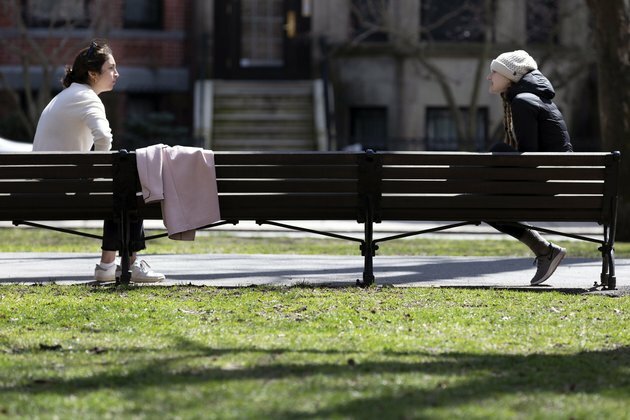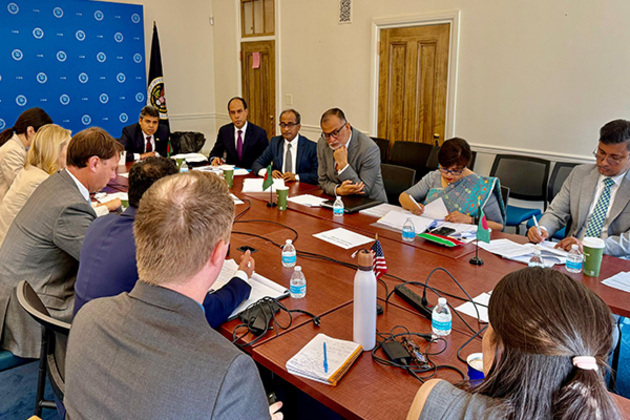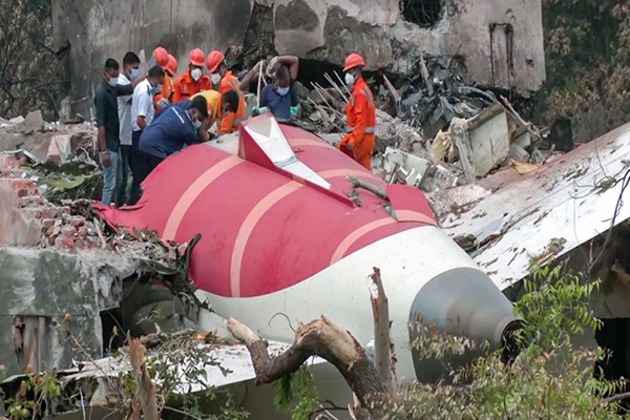Why it's not OK to take small social risks during the COVID-19 pandemic
The Conversation
07 Apr 2020, 20:11 GMT+10

We've all heard the advice from public health officials: stay at home, wash your hands and don't touch your face! We've cancelled sporting events, concerts and other mass gatherings; closed schools, libraries and playgrounds; and asked people to work from home wherever possible.
But as we enter into this extended period of social distancing (also called physical distancing), many might be wondering whether giving up in-person recreational time with friends and family is worth the potential harms to our social and emotional well-being.
Some may be asking: "Can I keep seeing my friends and family, but in a safer way?" But taking a risk-reduction approach to social distancing for COVID-19 won't work.
Risk reduction (or harm reduction) refers to public health strategies that minimize the risks and related harms of certain behaviours, without expecting people to stop engaging in those behaviours. Examples include using condoms during sex or wearing a helmet while bike riding; people still practise these behaviours, but they do them less often or in a safer way.
When it comes to COVID-19, those considering a risk-reduction approach to social distancing may be thinking: "Is it OK to take small risks, such as visiting my parents for the Easter holiday if we're all symptom-free? Or meeting up with my running group if we stay two metres apart? Or seeing my elderly grandmother in a nursing home if I've been physically isolating for 14 days?"
The short answer, sadly, is no.
Understanding the risks
First, COVID-19 is primarily transmitted by respiratory droplets produced when someone coughs or sneezes, and the virus can live on surfaces for several hours or even days. Even people who are practising social distancing can be exposed to COVID-19 when doing essential activities like getting groceries or exercising outdoors.
This means that even if you are staying at home and practising social distancing, it's still possible to have been exposed to the virus and not even know it. Because people infected with COVID-19 can be contagious before they start showing symptoms, every close contact with someone else - even if they are asymptomatic - risks transmitting the virus. So, no, you can't go visit your grandmother even if you have no symptoms and you've been physically isolating for 14 days.
Second, social distancing will only "flatten the curve" if everyone who is able to remain physically separated does so. This will keep the number of active cases below the health-care system's capacity and increases the likelihood that those who need care will be able to get it.
You may perceive your individual risk to be low, but the reality is that everyone is vulnerable to COVID-19. Social distancing protects not only you, but those in your communities who are at higher risk for severe disease, such as older adults. Even seemingly less risky social encounters with friends or family can prolong our time under social distancing measures.
Third, Canada is now seeing more cases of COVID-19 that were acquired in the community, where the source of infection cannot be linked to a known case or other risk factors, such as international travel.
This is why the public health response has transitioned to broad population-wide approaches like social distancing, which aims to slow the spread of the virus and prevent our health-care system from being overwhelmed.
Finally, no specific treatment for COVID-19 currently exists. Unlike seasonal influenza, where we have vaccines that provide some protection and antiviral drugs that might reduce symptoms, effective therapies for COVID-19 will take months or even years to develop.
About one to two per cent of people infected with COVID-19 will die of their infection (versus about 0.1 per cent for seasonal influenza), and it only takes about three to four days for the number of cases to double. Given these characteristics, loosening social distancing measures, despite how safe it might seem, can increase the number of people who will require admission to hospital or tragically die from this infection.
Redefining social interactions
What would a risk-reduction approach for COVID-19 look like for our more recreational social interactions? The risks of COVID-19 are not going to stop people from being social, any more than the risks of sexually transmitted infections or head injuries stop people from having sex or riding a bike.
During the COVID-19 pandemic, the metaphorical equivalent of using condoms and wearing a helmet is not to have less frequent social encounters with friends and family. Rather, we must redefine what those social interactions look like.
Read more: Playing video games can ease loneliness during the coronavirus pandemic
According to public health experts, this could include virtual meet-ups with friends or colleagues, calling or texting a friend you haven't seen for a while, hosting an online book club or movie night or spending family time with your household members.
These types of interactions are important for everyone, but especially those members of our society who live alone, or the one in five Canadians who experience mental health problems. We should still strive to stay socially connected, albeit in a different, more virtual way.
Until the virus is brought under control, practising strict social distancing, combined with other public health measures like widespread testing and vaccine development, will be critical in controlling the spread of COVID-19.
Authors: Catharine Chambers - PhD Candidate, Division of Epidemiology, Dalla Lana School of Public Health, University of Toronto | Daniel Harris - PhD Candidate, Division of Epidemiology, Dalla Lana School of Public Health, University of Toronto 
 Share
Share
 Tweet
Tweet
 Share
Share
 Flip
Flip
 Email
Email
Watch latest videos
Subscribe and Follow
Get a daily dose of Calgary Monitor news through our daily email, its complimentary and keeps you fully up to date with world and business news as well.
News RELEASES
Publish news of your business, community or sports group, personnel appointments, major event and more by submitting a news release to Calgary Monitor.
More InformationNorth America
SectionFedEx, UPS step up as Canada Post loses market share in strikes
OTTAWA, Canada: With Canada Post struggling to maintain operations amid labour unrest, rivals like FedEx and UPS are stepping in to...
Tariff talks between Bangladesh and US end without conclusion
Dhaka [Bangladesh], July 12 (ANI): The three-day second-round tariff talks between Bangladesh and the United States have ended without...
Paul McCartney announces fall 'Got Back' North American Tour; check out dates
Washington, DC [US], July 12 (ANI): The Beatles legend Paul McCartney is hitting the road again. The singer-songwriter has announced...
One pilot asked the other about fuel cutoff seconds before crash, says preliminary AI171 crash report
New Delhi [India], July 12 (ANI): A preliminary investigation into the Air India flight AI171 crash has revealed that just seconds...
"Our govt working towards "TelanganaRising" vision": CM Revanth Reddy
Hyderabad (Telangana) [India], July 12 (ANI): Telangana Chief Minister Revanth Reddy has said that the spirit of Telangana is similar...
Zelensky confirms resumption of US military aid
The Pentagon abruptly suspended the shipments in early July, citing a need to audit remaining stockpiles Ukrainian President Vladimir...
Canada
SectionFedEx, UPS step up as Canada Post loses market share in strikes
OTTAWA, Canada: With Canada Post struggling to maintain operations amid labour unrest, rivals like FedEx and UPS are stepping in to...
Jays top A's as Max Scherzer gets first win with Toronto
(Photo credit: Ed Szczepanski-Imagn Images) Alejandro Kirk and Nathan Lukes each drove in two runs during a six-run fifth inning...
Paul McCartney announces fall 'Got Back' North American Tour; check out dates
Washington, DC [US], July 12 (ANI): The Beatles legend Paul McCartney is hitting the road again. The singer-songwriter has announced...
D.C. United take on Galaxy in first match under interim coach
(Photo credit: Steve Roberts-Imagn Images) Troy Lesesne paid the price for D.C. United's lackluster season and academy director Kevin...
Daily World Briefing, July 12
Chinese FM calls for joint efforts in finding right way for China, U.S. to get along China and the United States should work together...
Without goalkeeper and captain, Orlando City face woeful Montreal
(Photo credit: Jim Dedmon-Imagn Images) Orlando City will be without their starting goalkeeper and their captain when they host a...











